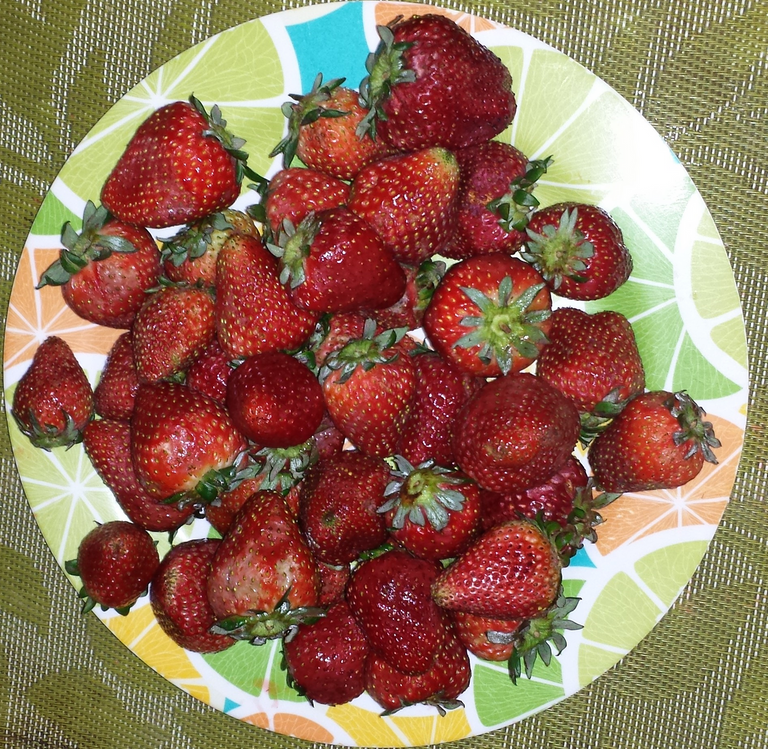
His family sat around the table with empty plates, sobbing lightly, feigning a theatrical play for the delight of those who looked at them with eyes full of hatred and rancor. They were all thin, with black circles under their eyes and pronounced cheekbones, the product of so many months of starvation.
Don Julio had even lost weight; his body once boasted a bulging belly that he barely supported by black leather suspenders attached to his linen pants. Now, his abdomen was reduced to a flabby roll of skin hanging from his belly. The bones of his hands were clearly visible, and those skeletal fingers with which months ago he had firmly gripped the whip to whip the slaves in the barracks. His lips were parched, with whitish sores, and the smile of the times when he used to laugh at hurting the skin of the blacks who did not comply with the daily harvest quota could not be distinguished. His whiskers and beard had grayed and turned a gray tangle that seemed to splinter his own chin.
"Eat them!" shouted one of those present, who was standing next to Don Julio's family. His voice carried a deep suspicion towards the one who in the past had been his owner and enslaver.
The other spectators began to strike the marbled floor with the end of their spears, in a rhythmic way, as if imitating the sonata of a funeral. Don Julio had to keep his part of the bargain if he wanted his family to survive the night. The faint cries of the daughters and granddaughters of the former hacienda owner could be heard.
Don Julio adjusted the napkin hanging around his neck and brought the plate of strawberries closer to himself. He glanced back for a brief second and could see the lifeless bodies of the dozens of guards that littered the entrance. He remembered the night when the slaves rioted in the barracks and came out ready to burn the strawberry fields as a sign of freedom. The crops that were the red stain of their oppression were now ashes scattered by the wind. The courage of the blacks was not diminished by the flashes of the guards and once the bullets were scarce, the former slaves turned the palatial mansion into a golden cage where they locked up the master and his family and condemned them to hunger and despair.
The food reserves ran out quickly, as they believed that the help of other landowners would arrive soon. They were unaware that the entire valley was going through the same process of rebellion and execution. Once they knew that the cupboards were empty and that this luxurious prison would also be their ornate tomb, they begged for better treatment from their captors, but their pleas went unheard. Just as in the past Don Julio did not hear the black women who begged not to be humiliated on the nights that the sickly livid old master awoke.
The plate of strawberries was still there and Don Julio began to eat them one by one. He cried as he did so, but he knew this was no time to back out. A deal was a deal. He had to eat those poisoned fruits so that his family would be allowed to leave the hacienda alive.
Translated with www.DeepL.com/Translator
I invite @cethzalez to participate in this contest organized by @topfivefamily

Su familia estaba sentada alrededor de la mesa con los platos vacíos, sollozando levemente, fingiendo una obra teatral para el deleite de aquellos que les miraban con ojos cargados de odio y rencor. Todos estaban delgaduchos, con negras ojeras y pronunciados pómulos, producto de la hambruna de tantos meses.
Incluso, Don Julio había perdido peso; otrora su cuerpo presumía de una abultada barriga que sostenía apenas de unos tirantes de cuero negro enganchados a sus pantalones de lino. Ahora, su abdomen estaba reducido a un rollo de piel fláccido que colgaba del vientre. Podía vérsele claramente los huesos de las manos y aquellos esqueléticos dedos con los que meses atrás asía firmemente el látigo para fustigar a los esclavos en las barracas. Sus labios estaban resecos, con llagas blanquecinas, y no se distinguía la sonrisa de tiempos en los que se carcajeaba al lastimar la piel de los negros que no cumplían con la cuota diaria de cosecha. Sus bigotes y barba se habían encanecido y vuelto una maraña gris que parecía astillarle el propio mentón.
— ¡Cómalas! — gritó uno los presentes, que estaba parado al lado de la familia de Don Julio. Su voz cargaba un profundo recelo hacia quien en el pasado fuera su amo y señor.
Los otros espectadores comenzaron a golpear con el extremo de sus lanzas el marmoleado suelo, de una forma acompasada, como imitando la sonata de un fúnebre entierro. Don Julio tenía que cumplir con su parte del trato si quería que su familia sobreviviera a esa noche. Se podía escuchar el leve llanto de las hijas y nietas del otrora hacendado.
Don Julio se acomodó la servilleta que colgaba de su cuello y acercó el plato de fresas hacia sí. Miró un breve segundo hacia atrás y pudo ver los cuerpos sin vida de las docenas de guardias que se regaban en la entrada. Recordó la noche en la que los esclavos se amotinaron en las barracas y salieron dispuestos a quemar los campos de fresas como señal de libertad. Los sembríos que fueron la roja mancha de su opresión ahora eran cenizas desperdigadas por el viento. El coraje de los negros no se vio menguado por los fogonazos de los guardias y una vez que las balas escasearon los antiguos esclavos convirtieron la palaciega casona en una jaula de oro donde encerraron al amo y a su familia y los condenaron al hambre y desesperanza.
Las reservas de alimentos se acabaron con rapidez, pues creían que la ayuda de otros hacendados llegaría pronto. Desconocían que todo el valle estaba pasando por el mismo proceso de rebelión y ajusticiamiento. Una vez supieron que las alacenas estaban vacías y que esa lujosa prisión sería también su ornamentada tumba rogaron por un mejor trato a sus captores, pero las súplicas no fueron oídas. Así como en el pasado Don Julio no oía a las negras que rogaban no ser humilladas las noches que el enfermizo lívido de viejo amo despertaba.
El plato de fresas seguía ahí y Don Julio empezó a comerlas una por una. Lloraba mientras lo hacía, pero sabía que no era momento para dar marcha atrás. Un trato era un trato. El debía de comer aquellas frutas envenenadas para que a su familia se le permitiese abandonar la hacienda con vida.
Invito a @cethzalez a participar en este certamen organizado por @topfivefamilly
Firma creada con CANVA




